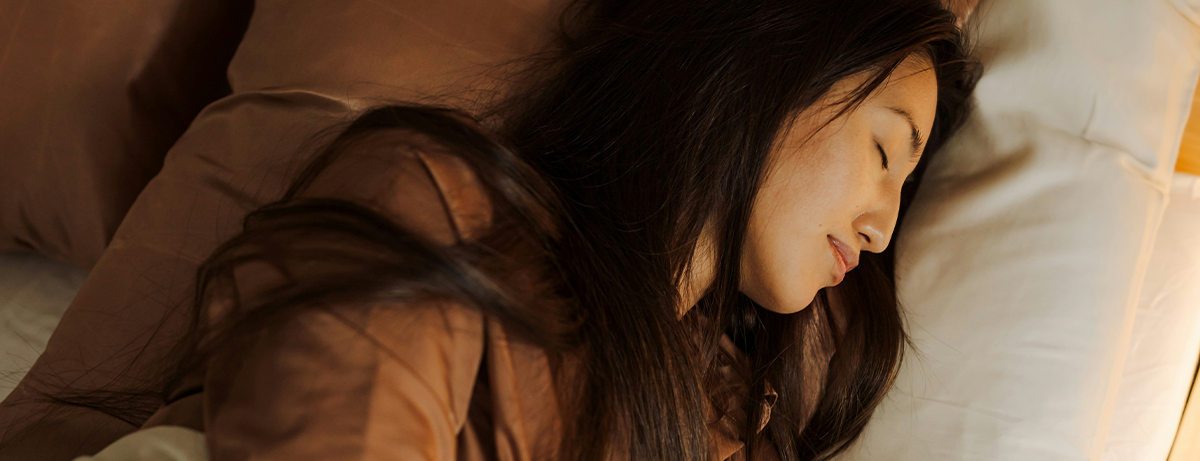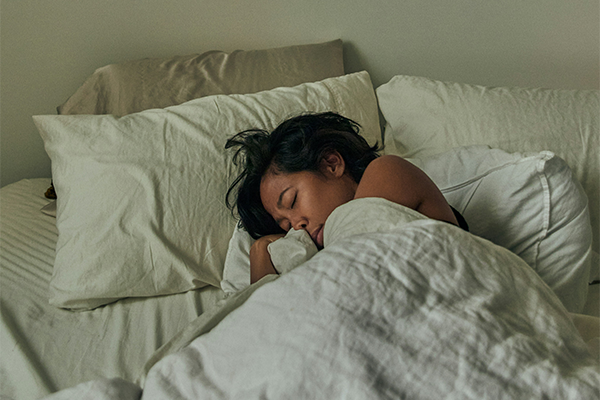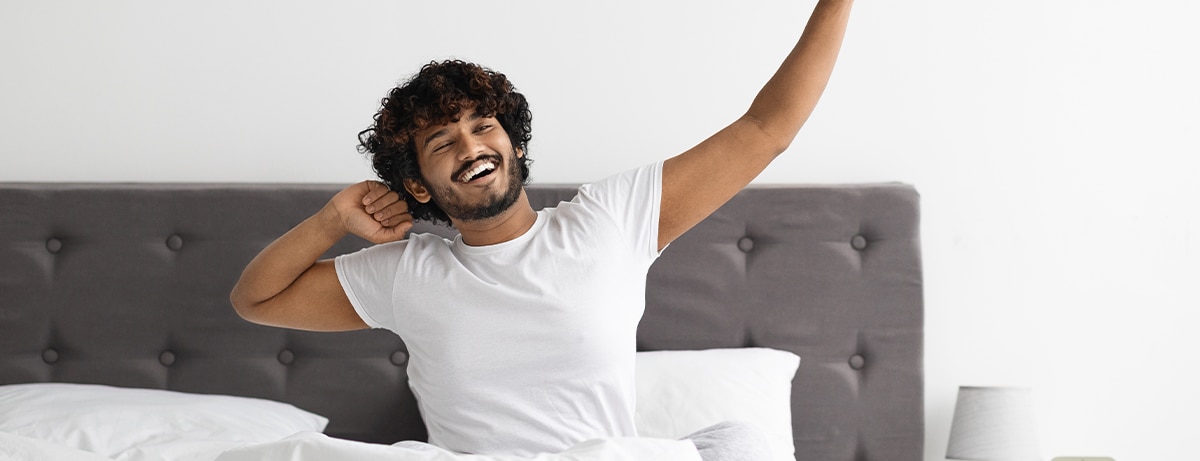15% off £25 or 20% off £35
Code:BASKET
Why am I waking up drenched? The truth about night sweats

Waking up in soaked sheets isn’t just uncomfortable, it could be your body sending you a signal. From hormones to stress, we look at some of the common culprits, when to see a doctor
Summary
1What are night sweats?
Night sweats are episodes of excessive sweating while you sleep, often soaking your sheets and disrupting your rest...
2Common causes of night sweats
Several factors can contribute to night sweats. Hormones, stress, infections, sleep disorders, certain medications and evening habits are among...
3When should you be concerned about night sweats?
Most of the time, night sweats aren’t something to lose sleep over. But if they’re frequent, intense or arise alongside other symptoms...
Have you ever woken up in the middle of the night feeling like you’ve just run a marathon in your sleep? One moment you’re snug as a bug, and the next, you’re peeling off the covers, drenched like you’ve taken a midnight dip. So, what’s cranking up the heat while you snooze? Whether it’s hormonal havoc, stress or something more serious, let’s break down why your body flips the switch to ‘sauna mode’ at night – and, more importantly, how to keep your cool.1
What are night sweats?
Night sweats are episodes of excessive sweating while you sleep, often soaking your sheets and disrupting rest.2 Unlike just feeling warm from a heavy duvet or a heated bedroom, they can occur even when your sleep environment is cool.3 They’re often linked to hormonal fluctuations, lifestyle habits or your body’s stress response.4

When should you be concerned about night sweats?
Most of the time, night sweats aren’t something to lose sleep over. But if they happen regularly, are intense or appear with other symptoms like fatigue, shortness of breath or joint pain, it’s worth speaking with a healthcare professional for reassurance.3,9
Common causes of night sweats
Fluctuating hormones are one of the leading reasons for night sweats. For example, changes during menopause, perimenopause or pregnancy can all influence your body’s thermostat, leading to hot flushes that don’t switch off at bedtime.2,3
Sleep disorders can also play a role. Conditions like obstructive sleep apnoea (OSA) or restless leg syndrome may disrupt rest and increase body heat.5
Some medicines list night sweats as a possible side effect. If you’re unsure, check your medication packaging and speak to your doctor if you have any concerns. In the meantime, small changes like keeping your bedroom cool, choosing light breathable bedding and staying hydrated can help make nights more comfortable.6
Stress hormones can send your body into fight-or-flight mode, which may trigger sweating — especially if paired with a racing heart or tense muscles.7
In some cases, night sweats may be linked to excessive sweating conditions like primary hyperhidrosis or digestive issues such as acid reflux. If they happen often or alongside other unusual symptoms, it’s best to check in with a healthcare professional.9
How to prevent and manage night sweats
Optimise your sleep environment
Your sleep environment makes a big difference: keep your room cool, use lightweight breathable bedding such as cotton, try moisture-wicking pyjamas, improve airflow with a fan or open window, or consider a cooling mattress topper.10
Adjust your diet
What you eat and drink before bed can influence your body temperature. Try cutting back on caffeine, alcohol and spicy foods in the evening, and stay hydrated with water throughout the day.8,11
Manage stress
Managing stress helps regulate your body temperature. Relaxation practices like meditation, deep breathing, gentle yoga or journalling before bed can help calm your system.7,12
Time your exercise
Regular movement supports better sleep, but intense workouts too close to bedtime may leave you overheated. Opt for gentler evening activity, like a relaxing walk, and save vigorous exercise for earlier in the day.13
The final say
Night sweats may be uncomfortable, but simple lifestyle changes can make a big difference. From cooling your sleep space to managing stress, small tweaks often help you sleep more soundly. If night sweats persist or appear alongside other symptoms, it’s always best to check in with a healthcare professional for peace of mind.
Looking for more ways to support better sleep? Explore our tips on building a calming bedtime routine or discover how to fall asleep quicker, according to a sleep scientist.
Disclaimer - This article provides informational advice and is not a substitute for medical care. Curated by experts for accuracy, we take great care to ensure the information is up-to-date and relevant. However, you should always consult your GP or healthcare professional before using supplements or alternative products, particularly if you have medical conditions or are under supervision.
1. Bryce C. Persistent night sweats: Diagnostic evaluation. Am Fam Physician. 2020;102(7):427–33. Available from: https://www.aafp.org/pubs/afp/issues/2020/1001/p427.html
2. National Institute on Aging. Menopause: Symptoms and causes. https://www.nia.nih.gov/health/menopause
3. NHS. Night sweats. https://www.nhs.uk/conditions/excessive-sweating-hyperhidrosis/night-sweats
4. Mayo Clinic. Night sweats. https://www.mayoclinic.org/symptoms/night-sweats/basics/definition/sym-20050768
5. Sleep Foundation. Night sweats: Causes and tips. https://www.sleepfoundation.org/night-sweats
6. NHS. Medicines and side effects. https://www.nhs.uk/common-health-questions/medicines/side-effects/
7. Anxiety UK. Anxiety and physical symptoms. https://www.anxietyuk.org.uk
8. Harvard Health Publishing. Alcohol, caffeine and sleep. https://www.health.harvard.edu/staying-healthy/alcohol-caffeine-and-sleep
9. NHS Inform. Night sweats and when to see a doctor. https://www.nhsinform.scot
10. Sleep Council. How to keep cool at night. https://sleepcouncil.org.uk
11. British Nutrition Foundation. Hydration and health. https://www.nutrition.org.uk/hydration
12. Mind. Relaxation tips. https://www.mind.org.uk/information-support/tips-for-everyday-living/relaxation/
13. NHS. Physical activity guidelines. https://www.nhs.uk/live-well/exercise












